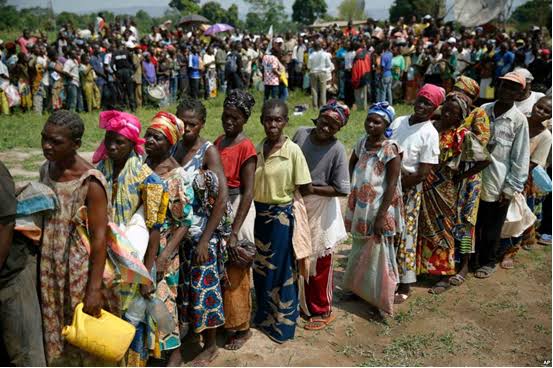The Federal Government is in talks with the World Bank to complete the processes of obtaining over $1bn in loans to address Internally Displaced Persons and boost agriculture in the surroundings of IDPs.
The request is contained in World Bank documents titled, ‘Solutions for the Internally Displaced and Host Communities Project’ and ‘Rural Access and Agricultural Marketing Project – Scale Up.’
While the IDP loan is put at $500m, the rural access and agricultural marketing project loan is estimated at $550m.
According to the documents provided on the bank’s website, the IDP initiative will improve access to resilient and inclusive basic services and economic opportunities for IDPs and their host communities in displacement-affected local government areas in the northern part of the country.
The Solutions for the Internally Displaced and Host Communities Project, estimated for an appraisal date of February 11, 2025, and slated for approval on April 8, 2025, is a targeted effort to improve the lives of millions affected by internal displacement due to conflict, violence, and climate challenges.
The World Bank added that the Federal Ministry of Budget and Economic Planning would act as the borrower for Nigeria, while the National Commission for Refugee Migrants and Internally Displaced Persons and the North East Development Commission will be the implementing agencies.
A breakdown of the funding showed that $30m was proposed to be spent on the project management and support for the implementation of the national policy while $120m will be spent on community development, income-generating opportunities, and social cohesion.
The document also reveals that strategic investments for climate-resilient economic development will gulp $320m and $30m on strengthening state and LG institutions for improved service delivery.
The document read, “The proposed project will utilise a three-pronged approach to develop sustainable solutions for IDPs and host communities in Northern Nigeria. First, the proposed project aims to provide tailored solutions for each of the targeted states and communities, recognizing that each internal displacement situation is specific and localised, with conflict, violence and/or climate challenges presenting a different level and set of vulnerabilities for host communities.
“Gender, age, and special needs of individuals also play a role, as well as the length of displacement, number of times displaced and other factors. Thus, responses will be adapted to address the specific needs of vulnerable populations within displacement-affected states and communities. Second, the proposed project will follow a “People-in-Place” approach, integrating the needs of the people and the impacts on the place where they settle.
“Project activities will aim to improve the provision of infrastructure and basic services as well as livelihood opportunities in an integrated way, moving beyond capital investments to supporting operational improvements and sectoral reforms, and fostering income-generating opportunities within host communities.”


